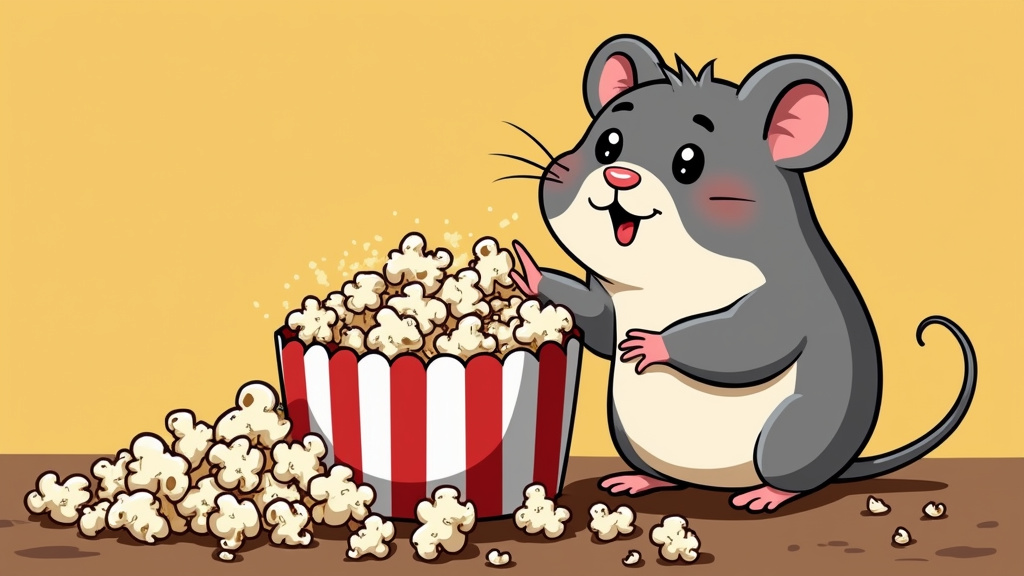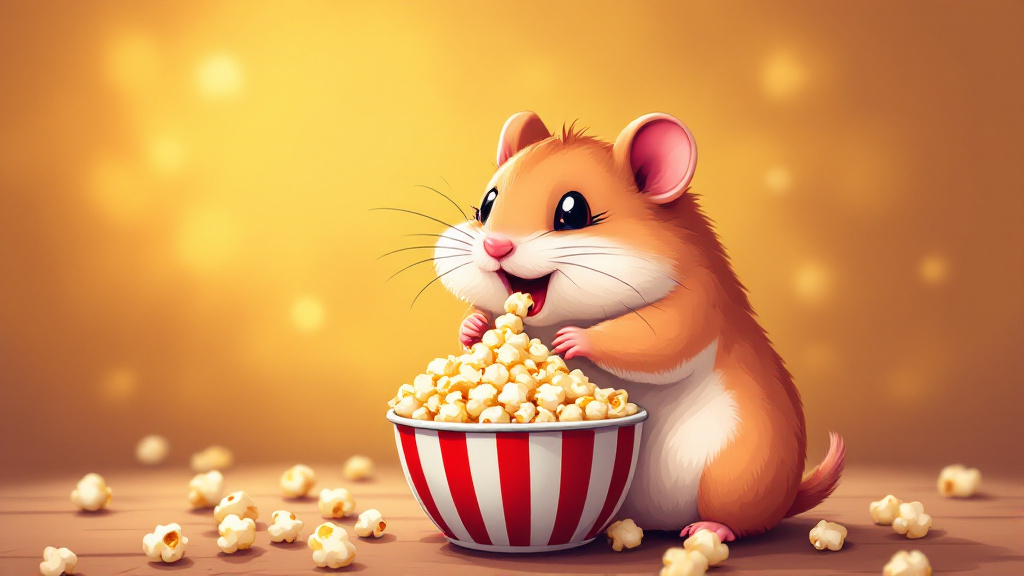Popcorn is a popular snack for humans, but when it comes to hamsters, many pet owners wonder: can they eat popcorn too? While plain popcorn might seem like a harmless treat, it can actually pose several health risks to hamsters if not given carefully. Due to their small size and specific dietary needs, certain aspects of this snack can be dangerous for them.
In this blog, we’ll explore the health risks associated with giving popcorn to hamsters. From weight gain to digestive issues, we’ll cover everything you need to know to keep your furry friend safe.
1. Obesity and Weight Gain
Popcorn, though light and airy, is surprisingly high in carbohydrates and calories. Even a small amount can add up quickly for a hamster, whose tiny body doesn’t need many calories to function. Overfeeding popcorn can lead to excessive weight gain, making hamsters prone to obesity. Obesity in hamsters is more than just a cosmetic issue; it can trigger more serious health problems, including diabetes and heart disease.
A balanced diet is essential for maintaining a hamster’s health, and offering treats like popcorn too frequently can disrupt their nutritional intake. To avoid these complications, it’s best to keep treats like popcorn to an absolute minimum, focusing instead on foods that align with a hamster’s natural diet.
2. Toxicity from Seasonings
While plain, air-popped popcorn is the safest option, most popcorn that people enjoy is flavored or seasoned, and this can be dangerous for hamsters. Additives like salt, sugar, butter, and oils are commonly used in popcorn and pose serious health risks for small animals.
- Salt: Even a small amount of salt can cause harm to a hamster. High sodium levels can lead to dehydration, which puts significant strain on their kidneys. In severe cases, too much salt can result in kidney failure.
- Sugar: Sugary popcorn varieties are also a concern. Excessive sugar intake can upset a hamster’s digestive system, leading to gastrointestinal distress. Additionally, sugar contributes to weight gain and obesity, increasing the risk of diabetes in hamsters.
- Butter and Oils: Popcorn that has been cooked or coated in butter or oils contains unnecessary fats that can cause health complications. These fats are difficult for hamsters to process, leading to potential liver and heart problems, and again contributing to obesity.
To protect your hamster, it’s essential to avoid any flavored or seasoned popcorn and stick to plain, air-popped options, if any at all.
3. Choking Hazard

Popcorn may look like an easy snack, but for hamsters, it comes with the risk of choking, especially from unpopped kernels or hard pieces. Despite their strong teeth and ability to store food in their cheek pouches, hamsters are still vulnerable to choking on hard or tough foods. Unpopped kernels, in particular, are difficult for them to chew and swallow properly, making them a significant hazard.
Even fully popped popcorn can have sharp or hard bits that could get stuck in their throat. Given the small size of a hamster’s mouth and airways, this risk is especially concerning. When offering any popcorn to your hamster, it’s important to make sure all kernels are fully popped and broken into manageable pieces, or better yet, avoid it altogether to eliminate this risk.
4. Chemical Exposure from Processed Popcorn
One of the hidden dangers of feeding popcorn to hamsters comes from processed varieties like microwave popcorn. These often contain chemicals called perfluorinated compounds (PFCs), which are used in the packaging to keep oil and grease from soaking through. While convenient for humans, these chemicals can accumulate in a hamster’s body over time and cause serious health problems.
Studies have shown that PFCs can potentially lead to organ damage and other long-term health complications. Since these compounds are not easily broken down, they may linger in a hamster’s system, increasing the risk of toxicity. Given the small size and fragile health of hamsters, even minimal exposure to these chemicals could be dangerous. For this reason, processed popcorn varieties should always be avoided when considering treats for your pet.
5. Digestive Issues
Hamsters have sensitive digestive systems, and introducing new or unfamiliar foods like popcorn can easily upset the balance. Sudden changes to their diet can lead to gastrointestinal distress, including symptoms like diarrhea, bloating, or general discomfort. While popcorn may not be immediately toxic, it can still be difficult for a hamster to digest, particularly if it’s given in large quantities or if it contains additives.
If you decide to offer popcorn as an occasional treat, it’s crucial to monitor your hamster closely for any adverse reactions. Watch for signs of bloating, changes in stool, or lethargy, which could indicate digestive upset. If any of these symptoms occur, it’s best to remove the popcorn from their diet and consult a veterinarian if the condition persists.
Conclusion
In summary, while plain, air-popped popcorn can be given to hamsters as a rare treat, it comes with several risks, especially if seasoned or processed varieties are used. Popcorn can lead to weight gain, pose choking hazards, and introduce harmful chemicals or digestive issues. To keep your hamster safe and healthy, it’s best to avoid flavored popcorn altogether and focus on providing a balanced diet of high-quality hamster pellets, fresh vegetables, and occasional safe treats.
By prioritizing the right foods, you can ensure your hamster stays happy, active, and free from the health risks associated with human snacks like popcorn.

